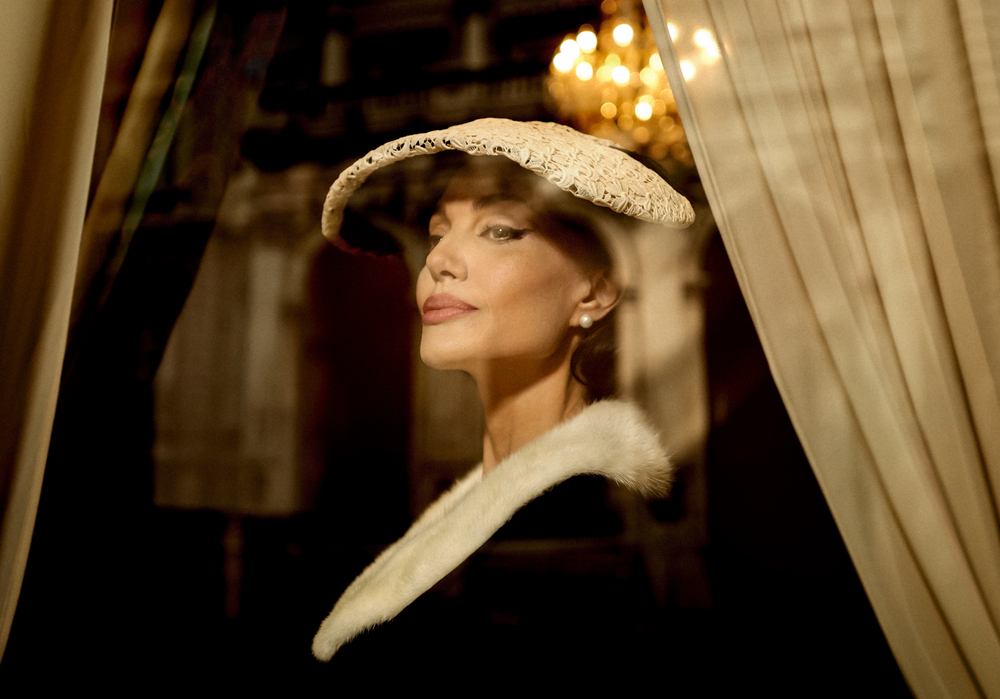Maria

Angelina Jolie stars in MARIA. (Photo: Netflix)
Maria Callas enthralled opera aficionados for decades with her soaring voice, but Maria prefers to focus more on her brain.
Both an affectionate tribute to the talent of the legendary diva and a complex examination of her career, this deliberately paced but richly detailed portrait from Chilean director Pablo Larrain (Spencer) is not intended as a comprehensive biopic.
Rather, it intimately and speculatively probes “La Callas” at her most vulnerable, forcing the iconic soprano to confront her legacy and mortality in virtual isolation during her final years in a haze of substance abuse and mental deterioration.
The visually striking and deeply introspective film consistently blurs the line between fantasy and reality, although it’s thematically familiar in exploring an artist struggling to cope with life outside the spotlight.
Set in 1977, it opens with a foreshadowing wide shot of her deceased body on the floor of her ornate Paris apartment, next to her beloved grand piano.
In the months prior, Maria (Angelina Jolie) lives with her exasperated butler (Pierfrancesco Favino) and doting housekeeper (Alba Rohrwacher). They both care about her well-being but are powerless to stop her downward spiral, which seems to be an effort to take control of her life and end it on her own terms.
Maria contemplates returning to the stage and relishes an ongoing dialogue with an enigmatic journalist (Kodi Smit-McPhee) as a connection to her fans. “I’m not hungry,” she explains to a waiter at an outdoor cafe. “I come to restaurants to be adored.”
Gradually, the film reveals contextual details in snippets filtered through Maria’s own escalating insanity, from her traumatic upbringing to her insecurity about listening to her own work. Then there’s the tumultuous affair with overbearing business magnate Aristotle Onassis (Haluk Bilginer).
It’s clear Jolie doesn’t do her own singing. However, her fully committed performance captures Maria’s essence beyond mimicry of her speech and mannerisms. She conveys an empowered sense of independence within her own psychological imprisonment.
The screenplay by Steven Knight (Eastern Promises) is disjointed and fragmented by nature, which keeps Maria’s inner turmoil at a distance and inhibits a deeper emotional impact.
It’s muddled as a broader look at the perils of celebrity and effects of mental illness, although as a bittersweet profile that digs beneath the beauty and elegance, Maria remains in tune.
Rated R, 124 minutes.